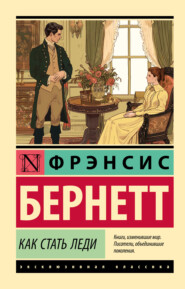По всем вопросам обращайтесь на: info@litportal.ru
(©) 2003-2024.
✖
Louisiana
Настройки чтения
Размер шрифта
Высота строк
Поля
At last the day came when the house was finished and stood big and freshly painted and bare in the sun. Late one afternoon in the Indian summer, Casey and his men, having bestowed their last touches, collected their belongings and went away, leaving it a lasting monument to their ability. Inside, instead of the low ceilings, and painted wooden walls, there were high rooms and plaster and modern papering; outside, instead of the variegated piazza, was a substantial portico. The whole had been painted a warm gray, and Casey considered his job a neat one and was proud of it. When they were all gone Louisiana went out into the front yard to look at it. She stood in the grass and leaned against an apple-tree. It was near sunset, and both trees and grass were touched with a yellow glow so deep and mellow that it was almost a golden haze. Now that the long-continued hammering and sawing was at an end and all traces of its accompaniments removed, the stillness seemed intense. There was not a breath of wind stirring, or the piping of a bird to be heard. The girl clasped her slender arms about the tree's trunk and rested her cheek against the rough bark. She looked up piteously.
"I must try to get used to it," she said. "It is very much nicer – and I must try to get used to it."
But the strangeness of it was very hard on her at first. When she looked at it she had a startled feeling – as if when she had expected to see an old friend she had found herself suddenly face to face with a stranger.
Her father had gone to Bowersville early in the day, and she had been expecting his return for an hour or so. She left her place by the tree at length and went to the fence to watch for his coming down the road. But she waited in vain so long that she got tired again and wandered back to the house and around to the back to where a new barn and stable had been built, painted and ornamented in accordance with the most novel designs. There was no other such barn or stable in the country, and their fame was already wide-spread and of an enviable nature.
As she approached these buildings Louisiana glanced up and uttered an exclamation. Her father was sitting upon the door-sill of the barn, and his horse was turned loose to graze upon the grass before him.
"Father," the girl cried, "I have been waiting for you. I thought you had not come."
"I've been yere a right smart while, Louisianny," he answered. "Ye wasn't 'round when I come, an' so ye didn't see me, I reckon."
He was pale, and spoke at first heavily and as if with an effort, but almost instantly he brightened.
"I've jest ben a-settin' yere a-steddyin'," he said. "A man wants to see it a few times an' take it sorter gradual afore he kin do it jestice. A-lookin' at it from yere, now," with a wide sweep of his hand toward the improvements, "ye kin see how much style thar is to it. Seems to me thet the – the mountains now, they look better. It – waal it kinder sets 'em off – it kinder sets 'em off."
"It is very much prettier," she answered.
"Lord, yes! Thar aint no comparison. I was jest a-settin' thinkin' thet anyone thet'd seed it as it was afore they'd not know it. Ianthy, fer instants – Ianthy she wouldn't sca'cely know it was home – thar's so much style to it."
He suddenly stopped and rested against the door-lintel. He was pale again, though he kept up a stout air of good cheer.
"Lord!" he said, after a little pause, "it's a heap stylisher!"
Presently he bent down and picked up a twig which lay on the ground at his feet. He began to strip the leaves from it with careful slowness, and he kept his eyes fixed on it as he went on talking.
"Ye'll never guess who I've ben a-talkin' to to-day, an' what I've ben talkin' to 'em about."
She put her hand on his knee caressingly.
"Tell me, father," she said.
He laughed a jerky, high-pitched laugh.
"I've ben talkin' to Jedge Powers," he said. "He's up yere from Howelsville, a-runnin' fer senator. He's sot his mind on makin' it, too, an' he was a-tellin' me what his principles was. He – he's got a heap o' principles. An' he told me his wife an' family was a-goin' to Europe. He was mighty sosherble – an' he said they was a-goin' to Europe."
He had stripped the last leaf from the twig and had begun upon the bark. Just at this juncture it slipped from his hand and fell on the ground. He bent down again to pick it up.
"Louisianny," he said, "how – would ye like to go to Europe?"
She started back amazed, but she could not catch even a glimpse of his face, he was so busy with the twig.
"I go to Europe – I!" she said. "I don't – I never thought of it. It is not people like us who go to Europe, father."
"Louisianny," he said, hurriedly, "what's agin it? Thar aint nothin' – nothin'! It come in my mind when Powers was a-tellin' me. I ses to myself, 'Why, here's the very thing fer Louisianny! Travel an' furrin langwidges an' new ways o' doin'. It's what she'd oughter hed long ago.' An' Powers he went on a-talkin' right while I was a-steddyin, an' he ses: 'Whar's that pretty darter o' yourn thet we was so took with when we passed through Hamilton last summer? Why,' ses he, – he ses it hisself, Louisianny, – 'why don't ye send her to Europe? Let her go with my wife. She'll take care of her.' An' I stopped him right thar. 'Do ye mean it, Jedge?' I ses. 'Yes,' ses he. 'Why not? My wife an' daughter hev talked about her many a time, an' said how they'd like to see her agin. Send her,' ses he. 'You're a rich man, an' ye kin afford it, Squire, if ye will.' An' I ses, 'So I kin ef she'd like to go, an' what's more, I'm a-goin' to ask her ef she would – fer thar aint nothin' agin it – nothin'.'"
He paused for a moment and turned to look at her.
"Thet's what I was steddyin' about mostly, Louisianny," he said, "when I set yere afore ye come."
She had been sitting beside him, and she sprang to her feet and stood before him.
"Father," she cried, "are you tired of me?"
"Tired of ye, Louisianny?" he repeated. "Tired of ye?"
She flung out her hand with a wild gesture and burst into tears.
"Are you tired of me?" she said again. "Don't you love me any more? Don't you want me as you used to? Could you do without me for months and months and know I was far away and couldn't come to you? No, you couldn't. You couldn't. I know that, though something – I don't know what – has come between us, and I feel it every minute, and most when you are kindest. Is there nothing in the way of my going away – nothing? Think again."
"Louisianny," he answered, "I cayn't think of nothin' – thet's partic'lar."
She slipped down on her knee and threw herself on his breast, clinging to him with all her young strength.
"Are you nothing?" she cried. "Is all your love nothing? Are all your beautiful, good thoughts for my happiness 'nothing'? Is your loneliness nothing? Shall I leave you here to live by yourself in the new home which is strange to you – after you have given up the old one you knew and loved for me? Oh! what has made you think I have no heart, and no soul, and nothing to be grateful with? Have I ever been bad and cruel and hard to you that you can think it?"
She poured forth her love and grief and tender reproach on his breast with such innocent fervor that he could scarcely bear it. His eyes were wet too, and his furrowed, sunburnt cheeks, and his breath came short and fast while he held her close in his arms.
"Honey," he said, just as he had often spoken to her when she had been a little child, "Louisianny, honey, no! No, never! I never hed a thought agin ye, not in my bottermost heart. Did ye think it? Lord, no! Thar aint nothin' ye've never done in yer life that was meant to hurt or go agin me. Ye never did go agin me. Ye aint like me, honey; ye're kinder finer. Ye was borned so. I seed it when ye was in yer cradle. I've said it to Ianthy (an' sence ye're growed up I've said it more). Thar's things ye'd oughter hev thet's diff'rent from what most of us wants – it's through you a-bein' so much finer. Ye mustn't be so tender-hearted, honey, ye mustn't."
She clung more closely to him and cried afresh, though more softly.
"Nothing shall take me away from you," she said, "ever again. I went away once, and it would have been better if I had stayed at home. The people did not want me. They meant to be good to me, and they liked me, but – they hurt me without knowing it, and it would have been better if I had stayed here. You don't make me feel ashamed, and sad, and bitter. You love me just as I am, and you would love me if I knew even less, and was more simple. Let me stay with you! Let us stay together always – always – always!"
He let her cry her fill, holding her pretty head tenderly and soothing her as best he could. Somehow he looked a little brighter himself, and not quite so pale as he had done when she found him sitting alone trying to do the new house "jestice."
When at length they went in to supper it was almost dusk, and he had his arm still around her. He did not let her go until they sat down at the table, and then she brought her chair quite close to his, and while he ate looked at him often with her soft, wet eyes.
CHAPTER XIV.
CONFESSIONS
They had a long, quiet evening together afterward. They sat before the fire, and Louisiana drew her low seat near him so that she could rest her head upon his knee.
"It's almost like old times," she said. "Let us pretend I never went away and that everything is as it used to be."
"Would ye like it to be thataway, Louisianny?" he asked.
She was going to say "Yes," but she remembered the changes he had made to please her, and she turned her face and kissed the hand her cheek rested against.
"You mustn't fancy I don't think the new house is beautiful," she said. "It isn't that I mean. What I would like to bring back is – is the feeling I used to have. That is all – nothing but the old feeling. And people can't always have the same feelings, can they? Things change so as we get older."
He looked at the crackling fire very hard for a minute.
"Thet's so," he said. "Thet's so. Things changes in gin'ral, an' feelin's, now, they're cur'us. Thar's things as kin be altered an' things as cayn't – an' feelin's they cayn't. They're cur'us. Ef ye hurt 'em, now, thar's money; it aint nowhar – it don't do no good. Thar aint nothin' ye kin buy as 'll set 'em straight. Ef – fer instants – money could buy back them feelin's of yourn – them as ye'd like to hev back – how ready an' willin' I'd be to trade fer' em! Lord! how ready an' willin'! But it wont do it. Thar's whar it is. When they're gone a body hez to larn to git along without 'em."
And they sat silent again for some time, listening to the snapping of the dry wood burning in the great fire-place.

















